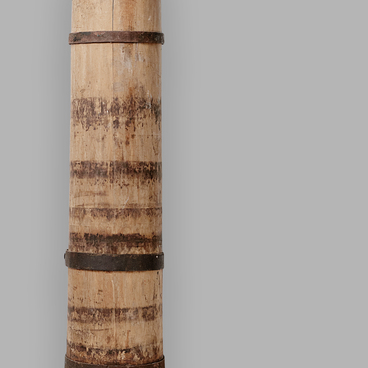The main kitchen utensil in an Adyghe household was a cast-iron or copper cauldron called “shyiuan”. It was suspended over the hearth on a special chain, which was considered sacred, like the hearth itself.
The rounded shape of the cauldron allows it to sink deeper into the hearth so the flame heats its entire surface, unlike flat-bottomed pans where only the bottom is heated. Cauldrons heat up faster and stay hot longer which significantly reduces fuel use. Cauldrons usually have wooden lids, which also contribute to saving firewood.
All the main dishes were cooked in these cauldrons. The Adyghe had a distinct and rich assortment of national dishes. Since ancient times, they have been engaged in cattle breeding, poultry farming and agriculture. Therefore, the Adyghe people primarily cooked dishes from lamb, beef, and poultry, as well as dairy and vegetable products.
The Adyghe people, like other people, have breakfast, lunch and dinner. A typical breakfast consists of tea with crumpets (“schalyam”), bread or fresh cheese. Meat dishes are usually served for lunch; and meat, dairy or sweet pastry dishes — for dinner. The Adyghe don’t use many spices, usually resorting to only salt and black pepper.
The main dishes of the Adyghe ritual and festive food: mamaliga with sauce, boiled and fried meats, and meat broth.
The main dish of the Adyghe cuisine is “ships”. This is a thick soup, stew or sauce (depending on the ingredients). Ships is a mandatory dish at festive and ritual events. Each woman has her own recipe for this dish. Flour is fried in a specially designated cast-iron pan in sunflower oil. Ground red pepper and a dry sauce mixture consisting of white corn flour and dried red pepper are then gradually added. The contents of the pan require constant stirring. Meat broth is added at the very end. However, meat is not an essential ingredient, and there is a variety of versions of the dish: lyships — meat with cereals or flour; thachetships — with turkey; chatscheteschips — with chicken; jenchischips — with beans and fried vegetables; jenships — milk soup with beans; kartofships — with potatoes; kabships — with pumpkin; shchushships — with fermented milk.



